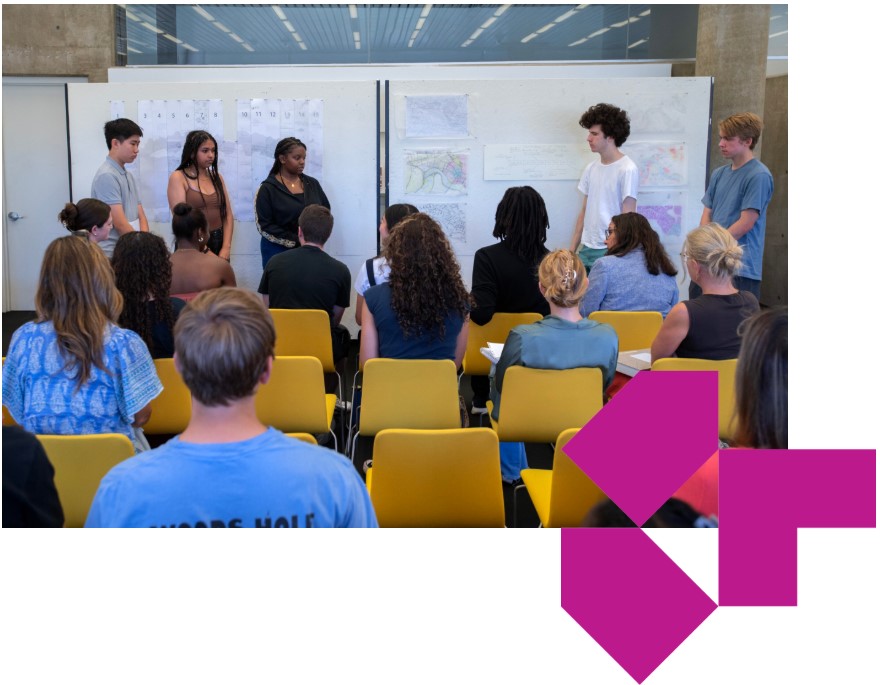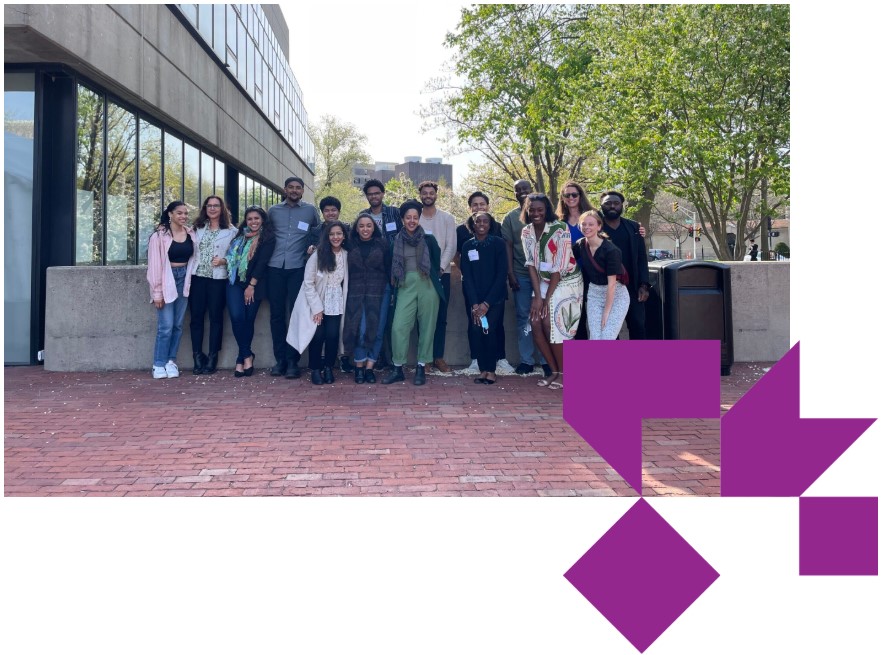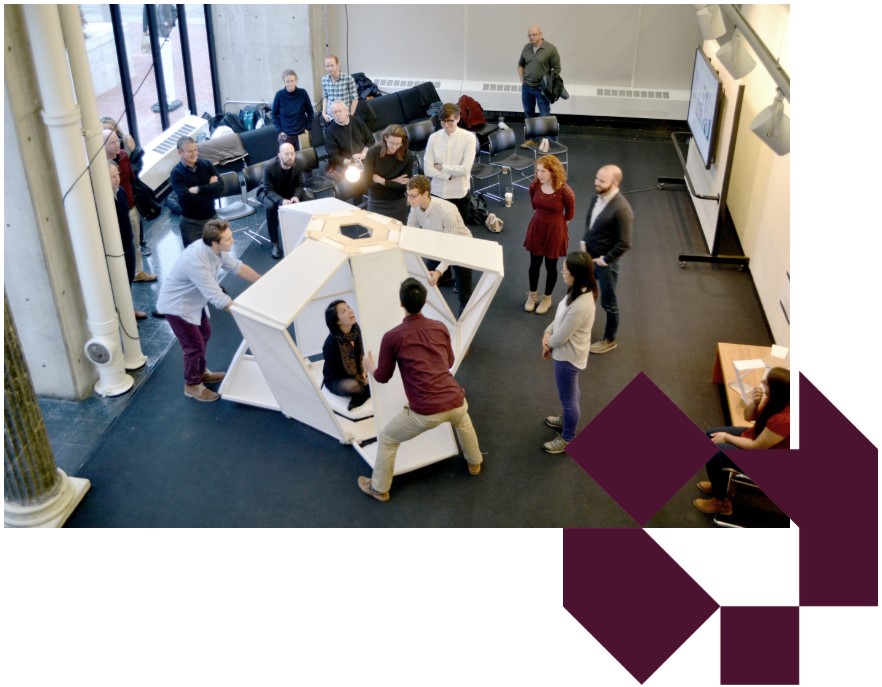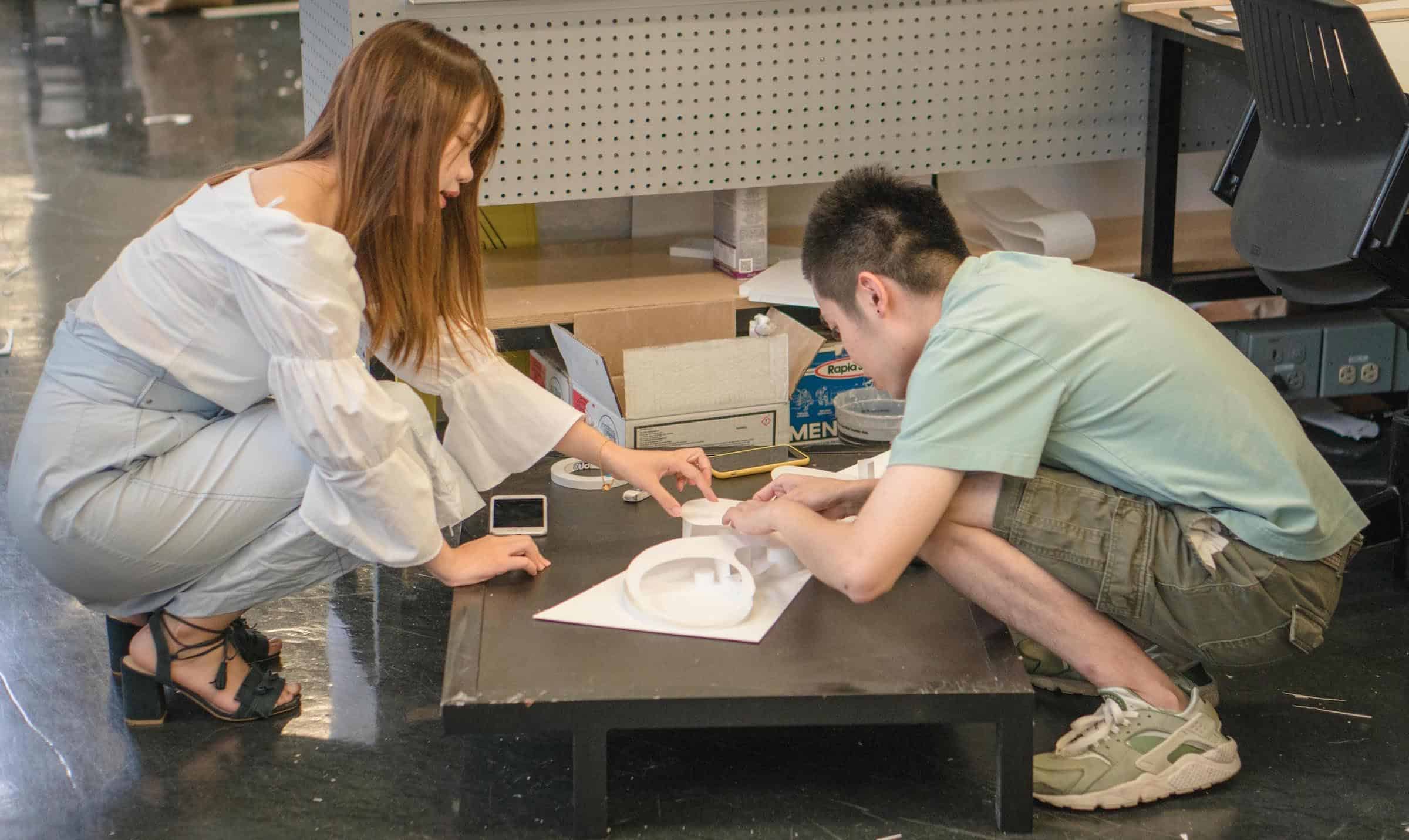Academic Affairs Resources
In this folder:
Academic AffairsResources
Academic Administration Business Office
Academic Administration, Academic Planning and Innovation
Academic Administration, Academic Planning and Innovation
Faculty Affairs
Academic Affairs, Community, Impact, and Opportunity
Student Affairs, Student Life
J-Term Resources
In this folder:
Resources
Department of Architecture, Department of Landscape Architecture, Department of Urban Planning and Design, Student Affairs
Non-Discrimination and Anti-Bullying
Harvard University is committed to fostering a campus culture where all members have equal opportunity to be successful in their work or academic and research pursuits. To reaffirm our collective commitment to equity and inclusivity, Harvard University has adopted a university-wide Harvard University’s Non-Discrimination Policy (PDF), effective September 1, 2023.
These policies apply to all students, faculty, staff, researchers, and other members of the Harvard community across all Schools and units, including the Harvard Graduate School of Design.
On This Page
- Overview
- Local Designated Resources
- Appropriate Officials
- Informal Procedures & Pathways for Responding to Concerns
- Formal Complaint Procedure
- Additional Resources
Overview
Below is information on the GSD’s formal and informal pathways for addressing concerning behaviors covered under the policies referenced above; as well as contact information for all the Appropriate Officials (AOs) and Local Designated Resources (LDRs) supporting implementation of the formal complaint procedure and informal procedures at the Graduate School of Design.
Local Designated Resources (LDRs)
Community members with concerns regarding potential policy violations can seek support, information, or advice from their Local Designated Resource (LDR) for an initial consultation to explore available options.
The following Local Designated Resources at Harvard Graduate School of Design will coordinate with the Harvard University’s Central Office regarding complaints, training, and education initiatives relative to the Policy. They also serve as a resource for receiving reports and complaints, directing community members to resources, and providing information on supportive measures:
- If you need guidance about a situation involving a student, contact Kelly Wisnaskas, Olivia Zimra-Turley or Laura DaRos.
- If you need guidance about a situation involving a faculty member, contact Caroline Newton or Pamela Baldwin
- If you need guidance about a situation involving a staff member, contact Sara Wilkinson.
Bringing a concern to the attention of the LDR does not automatically launch an inquiry or investigation.
In the event a community member objects to consulting with their Local Designated Resource based on an alleged conflict of interest or bias, they may bring the matter to the central Office for Community Support, Non-Discrimination, Rights and Responsibilities (CSNDR). CSNDR will review the claims and, if deemed necessary, appoint an alternative individual from the local School to serve as the LDR for initial consultation.
Appropriate Officials (AOs)
As it relates to our formal complaints procedures, the Appropriate Officials (AOs) are individuals or entities who will be the final authority to issue any sanctions following completion of an investigation and determinations related to policy violation. There are different AOs for students, staff, and faculty & academic appointees, which is detailed below.
At Harvard GSD, the following individuals have been designated as Appropriate Officials, who serve as the final authority to issue any sanctions under the University’s non-discrimination and anti-bullying policies:
For situations involving faculty, the Appropriate Official is the GSD Dean, Sarah Whiting or their designee.
For situations involving students, the Appropriate Official is the faculty members serving on the GSD Review Board; Janice Gilkes, Senior Associate Dean for Academic Affairs or their designee.
For situations involving staff members, the Appropriate Official is the Senior Associate Dean for Academic Affairs, Janice Gilkes or their designee.
Informal Procedures & Pathways for Responding to Concerns
In a diverse academic community, differences of opinion and conflict can emerge, some of which may or may not rise to the level of violating this policy. Nonetheless, it is essential for us, as a community, to uphold our shared Community Values and participate in procedures that nurture a culture of respect. Acknowledging the wide range of behaviors that can manifest, the informal resolution process serves as a means to address issues stemming from interpersonal dynamics.
All informal procedures and resolution options are overseen and administered by the GSD’s Chief Community, Impact and Opportunity Officer Naisha Bradley. For any guidance regarding the informal resolution process, please contact [email protected].
The Informal Resolution Process is a support-based, non-judicial approach designed to resolve complaints through awareness, education, and/or facilitated dialogue. Depending on the nature and severity of the conduct, responses may include, but are not limited to:
- One-on-One Consultation: This option enables the affected individual(s) to receive personalized consultative support and referrals to appropriate resources.
- Mediation: Affected individuals can engage in a mediated conversation, with access to relevant educational resources, to discuss and address the conflict.
- Restorative Justice: In this approach, affected individuals, possibly with the involvement of external stakeholders, participate in a practice that addresses harm and conflict through inclusive dialogue and collaborative problem-solving.
Anonymity can only be guaranteed for the informal resolution process. Reports can be made anonymously using the Anonymous Reporting Hotline , an existing University-wide resource that is operated by an independent third-party vendor. All reports are taken seriously; please note that under such circumstances, the ability to fully address the report may be limited
Here is a brief overview of options for taking action. We encourage you to speak with a Local Designated Resource (LDR) as a first step.
| Option | Summary | Process |
| Get information and discuss a concern | Learn what the new policies cover, talk to someone about your concern, discuss options, and get information on resources | Contact an LDR. Discuss your concerns (this does not begin a formal complaint or investigation). |
| Informal Resolution | Work out a mutually agreed-upon solution to your concern. | Contact GSD Chief Community, Impact and Opportunity Officer Naisha Bradley. Bradley will discuss possible options with you. In many cases, Bradley will help you develop a plan to address your concern. Informal resolutions that affect both parties are voluntary; discussions with both parties will occur (separately at first) if appropriate to develop a mutual resolution. |
| Supportive Measures | Request special temporary arrangements related to your concern such as academic extensions or modifications in work schedule. | Contact LDR to discuss your concern and needs. These can be put in place with either informal resolution or a formal complaint. |
| Formal Complaint | Request an official university investigation of alleged policy violation. Complaint must be “accepted” before investigation is undertaken. | All formal complaints must be submitted in writing. The LDR will work with the Central Office to determine if the complaint is accepted for investigation, or dismissed, based on the facts alleged. If accepted, an impartial investigator will investigate and make findings of fact and a recommendation as to whether the policy has been violated. The findings of fact will go back to GSD for a determination of violation (or not) by a three-person panel. If a violation is found, the School will issue sanctions or take remedial action. |
Formal Complaint Procedure
All members of the GSD community can file a formal complaint if they have experienced concerning behavior covered in our non-discrimination and anti-bullying policies. A complainant may file a formal complaint with the Local Designated Resource or with the central Office for Community Conduct. Complainants filing a formal complaint cannot remain anonymous or prevent their identity from being disclosed to the respondent. To learn more about the process for filing a formal complaint please contact your Local Designated Resource. For additional questions, you may also submit a contact request .
Additional Resources
GSD Community Values, Rights, and Responsibilities
Harvard University Office for Community Support, Non-Discrimination, Rights and Responsibilities (CSNDR)
Harvard University Disability Resources
Harvard University Office for Dispute Resolution
Harvard University Ombuds Office*
Harvard Chaplains*
Harvard University Counseling and Mental Health Services*
Harvard University Health Services Behavioral Health*
SHARE*
*Confidential Resource
Office Hours
Office Hours are a tool at students’ disposal to take full advantage of their courses, build relationships with faculty members, and define goals for their education and career.
For Students
Faculty may offer Office Hours at regularly scheduled times, or by appointment.
Some tips: Come prepared with questions and topics, and connect with the faculty member ahead of time if you’re looking for feedback on anything specific, so they have enough time to review it beforehand.
Browse the current semester’s office hours information at the links below:
For Faculty
Office Hours listed above are compiled from a survey distributed via email at the start of each semester.
If you need to update your information, follow the link in your survey confirmation, or email Nico Hayes-Huer.
Looking for a scheduling tool? View recommended options.
Early Design Education
Early Design Education (EDE) at Harvard’s Graduate School of Design (GSD) is a set of five academic programs, including Design Discovery, that introduce design and its potential to change the world to audiences of varied ages and familiarity with design.
All programs are crafted to engage participants with design methods across scales with the assumption that the program is one of the earliest experiences of thinking through making encountered. We invite high school through mid-career professionals to join us! Each program connects the breadth and depth of design talent at Harvard’s GSD to a global public.
Early Design Education programs
Design Discovery
An in-person program for individuals interested in gaining knowledge within a single design discipline – Architecture, Landscape, or Urban Planning and Design. This program directs making to engage the material and scale of each discipline.

Design Discovery Virtual
A virtual program emphasizing digital media for design drawing and modeling for an international audience interested in design across Architecture, Landscape, and Urban Planning and Design.

Design Discovery Youth
An in-person summer program for Boston area high school students interested in learning about design and the material, processes, and scales it involves. This program teaches the translation of participants’ varied and valuable observations of the world into the visual and spatial language of design.

Equity in Design Mentorship
An in-person spring program for Boston area high school students interested in learning about design and the material, processes, and scales it involves. This program teaches the translation of participants’ varied and valuable observations of the world into the visual and spatial language of design.

Undergraduate Architecture Studies
A 4-year undergraduate degree program in Architectural Studies that teaches design thinking through making within the liberal arts context of Harvard College, run in partnership with the Harvard College History of Art & Architecture department.

Janice Gilkes
Donna Lewis
Clifford Wong Prize in Housing Design
Clifford Wong Prize in Housing Design
Established in 1990 by a generous gift from Nelson K. Chen (AB ’75, MArch ’78), the Clifford Wong Prize in Housing Design is an annual prize created in memory of Hong Kong architect and developer, Clifford C. F. Wong. The prize aims to help re-establish the essential role of architects in society to provide not only the fundamental needs of human shelter but to meet the challenge of designing creative solutions for improving living environments.
The Clifford Wong Prize in Housing Design recognizes a multi-family housing design that incorporates the most interesting ideas and/or innovations that may lead to socially oriented, improved living environments. Students in all GSD programs are invited to submit a project that considers today’s challenges posed in housing design. The prize may be awarded for a design executed by a single student or by several students working in collaboration in a regular GSD core or option studio, thesis, or independent study course completed during the current academic year. Projects performed as independent studies outside the GSD or as part of a professional commission will not be eligible.
The winning prize entry is chosen by a faculty committee selected each year by the Dean. The quality of the overall design effort will be taken into account, but the prize will not necessarily be awarded for the most mature and complete design effort; therefore, students in core and options studios that focus on multiple housing are invited to submit entries regardless of their levels of advancement. The housing design may be complete with respect to site planning, unit and landscape design, means of construction, and overall visual expression, or the design may focus on one or more aspects of the design. Entries should illustrate how the housing design relates to its urban, suburban, or rural settings. However, large-scale, urban design projects where housing is merely a minor element will not be eligible.
Recent Recipients
2025: “Block Edit” by Chandler Caserta (MArch I ’25)
2024: “Tectonics of Tenure: Public Infrastructure for Collective Housing” by Maggie Musante (MArch I ’24)
2023: “Sidewalk Stuff: Adaptive Reuse Cohousing” by Randy Crandon (MArch I ’25) and Maddie Farrer (MArch I ’25)
2022: “People’s Park Complex: Repairing the Modern City” by Brian Lee (MArch ’22)
2021: “Up from the Past: Housing as Reparations on Chicago’s South Side” by Isabel Strauss (MArch I ’21) and “Cripping Architecture” by Shaina Yang (MArch I ’21)
2020: “A House is Not a Home” by Qin Ye Chen (MArch I ’22) and Yiwen Wang (MArch I AP ’22)
2019: “A Giant Among Us” by Son Vu (MArch I ’21) and Alex Yueyan Li (MArch I AP ’21)
2018: “Dwelling + Ground: Terraformed Housing for Port-Au-Prince” by Belle Verwaay (MArch ’18)
View a list of past winners (PDF)

